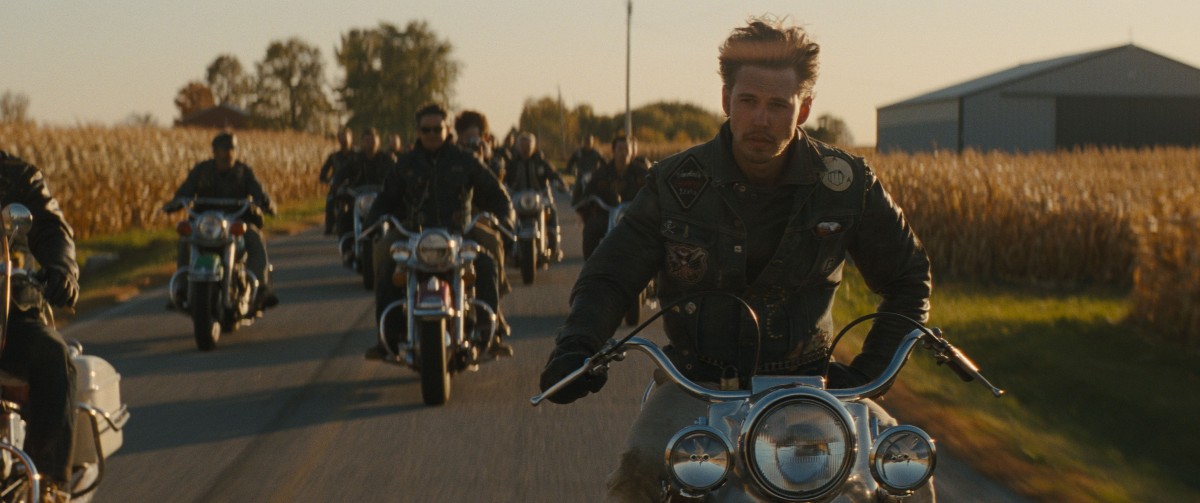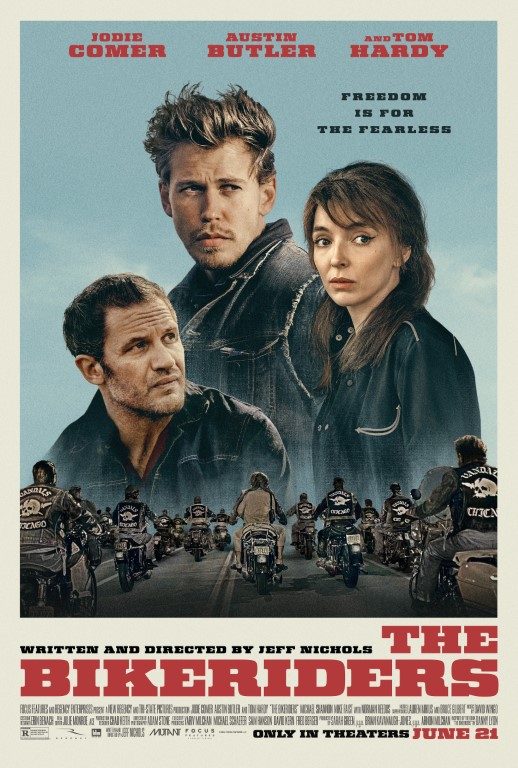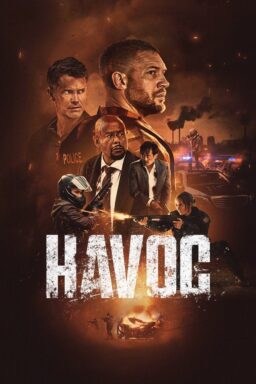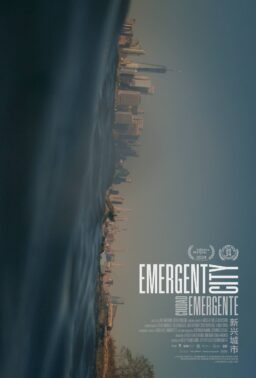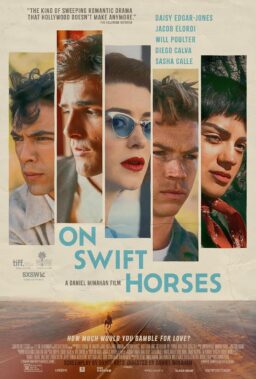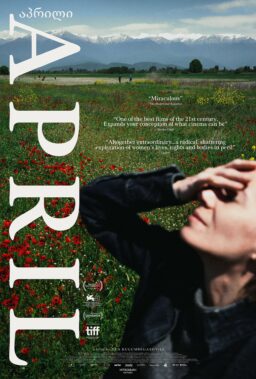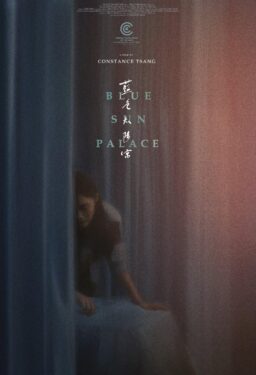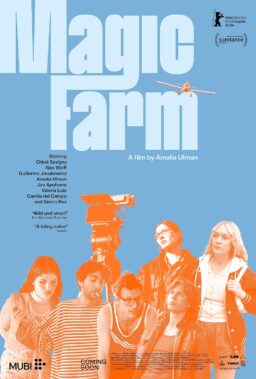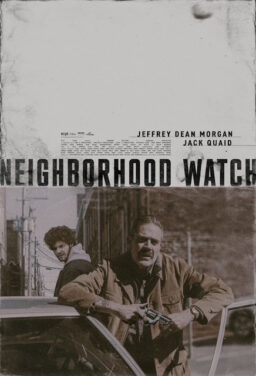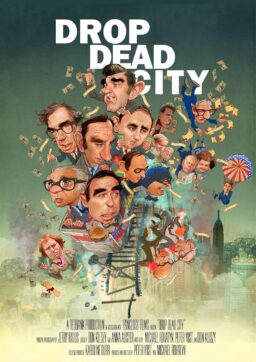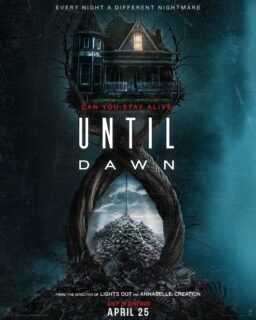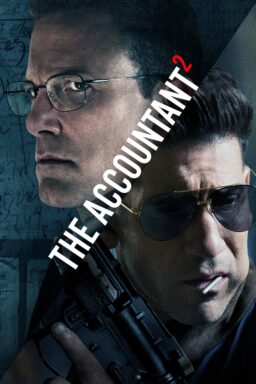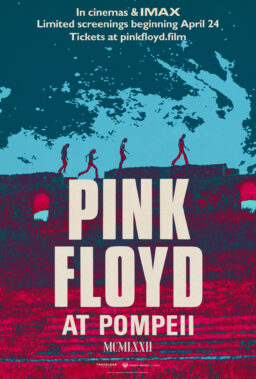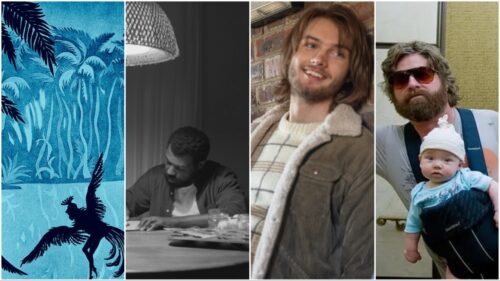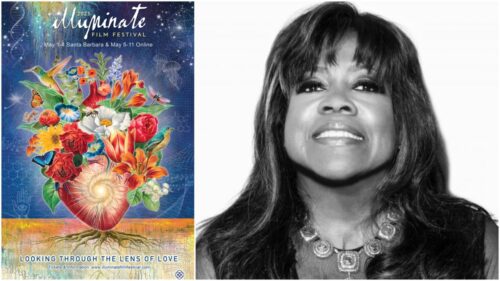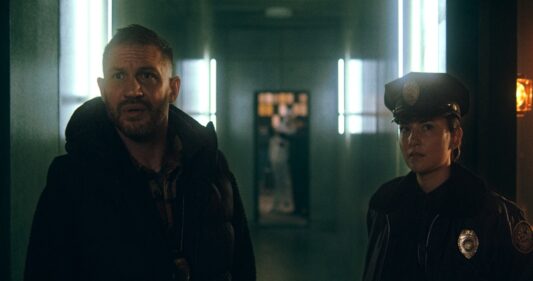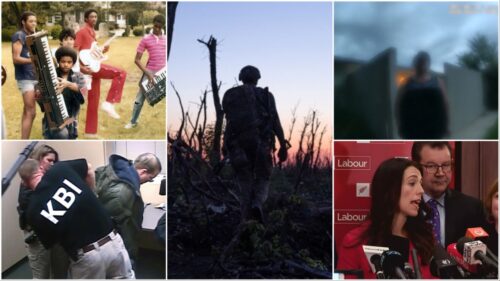From the very first scene of “The Bikeriders,” director Jeff Nichols is working hard to evoke an era. In an opening deep focus shot through a bar’s door frame, Benny, a biker, sits at the bar with his back to us. The camera pushes in, revealing two older men approaching him. They want him to remove his colors—his vest of patches—or leave the bar. As Benny quietly takes in their demand, we take in his visage: We see the frayed threads on his jacket, the insignia of a skull that indicates his membership in the Chicago Vandals club, and, of course, the angular features of Butler. Cigarette smoke crawls across Benny’s face; his finger taps his whiskey glass. “You’d have to kill me,” the laconic Benny responds. It’s a request these two men are happy to fulfill. They take him out to the street and rough him up. Benny takes a knife from his boot, slashing one man’s face. A sadistic smile warps his rugged features as a shovel, picked up by the other guy, comes for the back of his head. Freeze frame.
It’s a gripping scene, one invested with pristine period detail meant to provide a snapshot of a culture and the aura of a man. When Nichols’ film works best, it’s acting in that two-handed fashion. Taking cues from photographer Danny Lyon’s same-titled book, itself inspired by Lyon’s infiltration into Midwest biker clubs from 1965-73, Nichols’ study falters whenever he forgets the man at the center of this subculture. “The Bikeriders” is a film of aesthetics hoping to summon the spirit of a moment by looking and sounding the part without ever feeling it.
It first stumbles by lacking a clear center. Nichols opts for Kathy (Jodie Comer) to be our way into this world. Lyon (Mike Faist), who records her interviews throughout the film, first catches up with her at a laundromat in 1965. She recalls one night when a girlfriend dragged her out to a bar owned by the Vandals. She arrived conventionally dressed in white Levis and a purple sweater. This salty bar filled with seemingly crude men all dressed in leather and denim biker vests, some without shirts, some with earrings—isn’t exactly her vibe. She wants to leave until she sees Benny standing at a pool table. The picture slows to the speed of heavenly molasses, and cinematographer Adam Stone’s honeyed lens captures Butler trying his damndest to be James Dean—and nearly succeeding. Like the viewer, Kathy is immediately attracted to what Benny represents: Freedom.
Kathy is an outsider to this society, flummoxed by its rules, rituals, and politics. We learn very little about her other than she lives in a prototypical Midwest brownstone with a working-class husband, who Benny scares off after he sits across their home with his bike during the night. Before long, Kathy introduces us to the rest of the club: The level-headed Brucie (Damon Herriman), the gear-head Cal (Boyd Holbrook), an unstable Latvian angry that he couldn’t go to Vietnam named Zipco (Michael Shannon), the bug-eater nicknamed Cockroach (Emory Cohen), and more. She also recalls the lore of Johnny (Tom Hardy) founding the gang after watching Marlon Brando in “The Wild One” and the reality of the club simply springing from his love of racing. Either way, Johnny, who works a 9-5 job that we never see and has a wife and two children, is like many of the other men introduced through gorgeous tableaux and direct addresses. He wants to belong somewhere, and the post-war dreams of white picket fences mean very little, if anything, to him. Like Kathy, he sees the freedom he craves in the volatile loyalty of Benny—a man who will jump into a fray against Indiana bikers without any further details if he sees his brothers in trouble.
“The Bikeriders” is often strongest when we’re peering into this subculture through the eyes of Benny and Kathy. They are younger than the men in the Vandals, with different wants and desires than them. Through this couple, we watch the Vandals grow from an amiable band of dorks—who are only trying on the clothes of rebellion as a break from the doldrum of their lives—into a club with various chapters stretching across the Midwest. Alone, these men are frightened; together, they roar as a pack, sharing jokes, tips, and feelings. Wide shots of hot, muscular bikes rumbling across the quaint plains visually mark the tension between the steely masculinity the men want to project and the quieter souls who lurk underneath the shadows they cast.
In the film’s first half an hour, soundtracked to 1950s needledrops, Nichols acutely captures the halcyon days of early biking culture. But he struggles to plot its digression—how soldiers affected by PTSD returning home from the Vietnam War and a violent youth culture altered the vibe—shifting the focus from Kathy and Benny to Johnny and Kathy. Through his hunched stature and strained lines on his face, Hardy vividly reaches for the complications swimming within Johnny, but Comer lags far behind. It’s not just that her Midwest accent is so self conscious (this cast is each trying their own regionally specific takes to varying results); she remains a caricature, distractingly pulling us from the emotionality of many scenes by her presence. Once again, it doesn’t help that her character is thinly conceived. There are far too few scenes between Kathy and Benny: What exactly is their married life?
The Vietnam War is also an underwritten presence. Though veterans-turned-bikers soon spring up, diluting the feel-good homosocial love of this pack into a criminal entity, the war itself never occupies television or radio stations or the painstakingly crafted Midwest neighborhoods that these bikers roar through (no recruitment posters or servicemen on street corners) that would’ve been hit hard by the draft. You get the sense the film wants to connect the war with the disaffected youth who haven’t served yet—particularly a sinister Toby Wallace—but the connection is narrow at best.
Admittedly, when I first watched “The Bikeriders,” I was lukewarm about Butler’s performance. Maybe it was because after playing the embodiment of an era in “Elvis,” I was less than enthused to see him do so again, this time as a biker. But upon a second watch, he commands the moment. The camera loves him, and he knows how to play to the light, allowing it to bend across his features to minutely modulate his steaminess, forlornness, and vulnerability. He completely articulates the kind of exposed masculinity Nichols is so intrigued by. When he leaves the screen, not only does the group lose its aura, so does the film. Nichols never finds a way to recapture one’s interest because the story and its cast of characters are too broad, too poorly conceived as recopied figures from Lyons’ photos to pull you into their orbit.
The film’s second half, mostly without Butler, doesn’t become a grand elegy for a purer bygone era. It becomes empty, artificial scenes of actors playing dress-up. Maybe that artifice works on some level, especially in a film about men who decided to play the part of counterculture figures rather than buying into the mirage of the American dream. But without someone like Butler to hold our attention, the film becomes too underwhelming, too unfocused to engender any mourning for the time it hopes to recreate. And it only just barely places itself on a timeline leading us to “Easy Rider.” As innocence dies, “The Bikeriders,” which whimpers off into the sunset, dies with it too.

